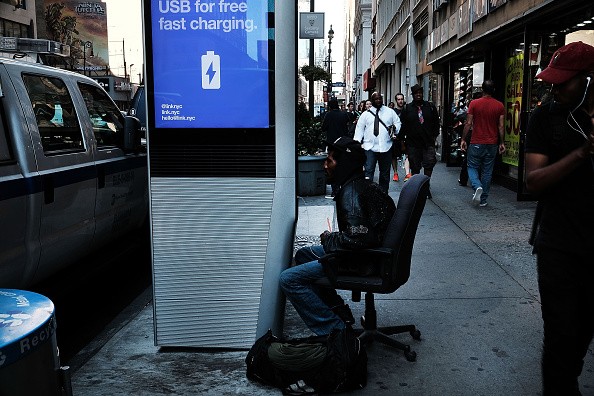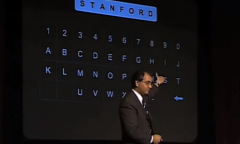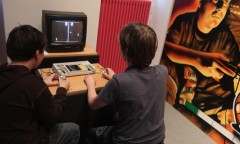By Iesha Javed, | September 26, 2016

A man uses one of the new Wi-Fi kiosks that offer free web surfing, phone calls and a charging station in New York City.
In an almost accidental discovery, a researcher at the University of California, Irvine (UCI) has invented a rechargeable battery that might never need to be charged.
Mya Le Thai, a doctoral student at UCI, while experimenting with rechargeable batteries stumbled upon a particular arrangement that yielded a battery that could run forever. Her battery, which consists of extremely thin nanowires, MNO2, and an electrolyte gel, can go on and on for tens of thousands of cycles of charging. Currently, the average battery can last for about 400-500 cycles of charging.
Like Us on Facebook
This essentially means that the battery could last for 400 years. If the technology finds application, people may never have to worry about replacing their laptop battery.
The new breakthrough is expected to create a sensation in the mobile and laptop markets where companies are investing huge amounts to increase battery life. With a battery that can outlive the device itself, this could lead to a revolution in the battery manufacturing business.
The two areas where the invention may find immediate application are the personal electronics sector as well as IT waste management. With this technology, fewer batteries would be discarded, and this would cut down on computer waste.
-
Use of Coronavirus Pandemic Drones Raises Privacy Concerns: Drones Spread Fear, Local Officials Say

-
Coronavirus Hampers The Delivery Of Lockheed Martin F-35 Stealth Fighters For 2020

-
Instagram Speeds Up Plans to Add Account Memorialization Feature Due to COVID-19 Deaths

-
NASA: Perseverance Plans to Bring 'Mars Rock' to Earth in 2031

-
600 Dead And 3,000 In The Hospital as Iranians Believed Drinking High-Concentrations of Alcohol Can Cure The Coronavirus

-
600 Dead And 3,000 In The Hospital as Iranians Believed Drinking High-Concentrations of Alcohol Can Cure The Coronavirus

-
COVID-19: Doctors, Nurses Use Virtual Reality to Learn New Skills in Treating Coronavirus Patients











